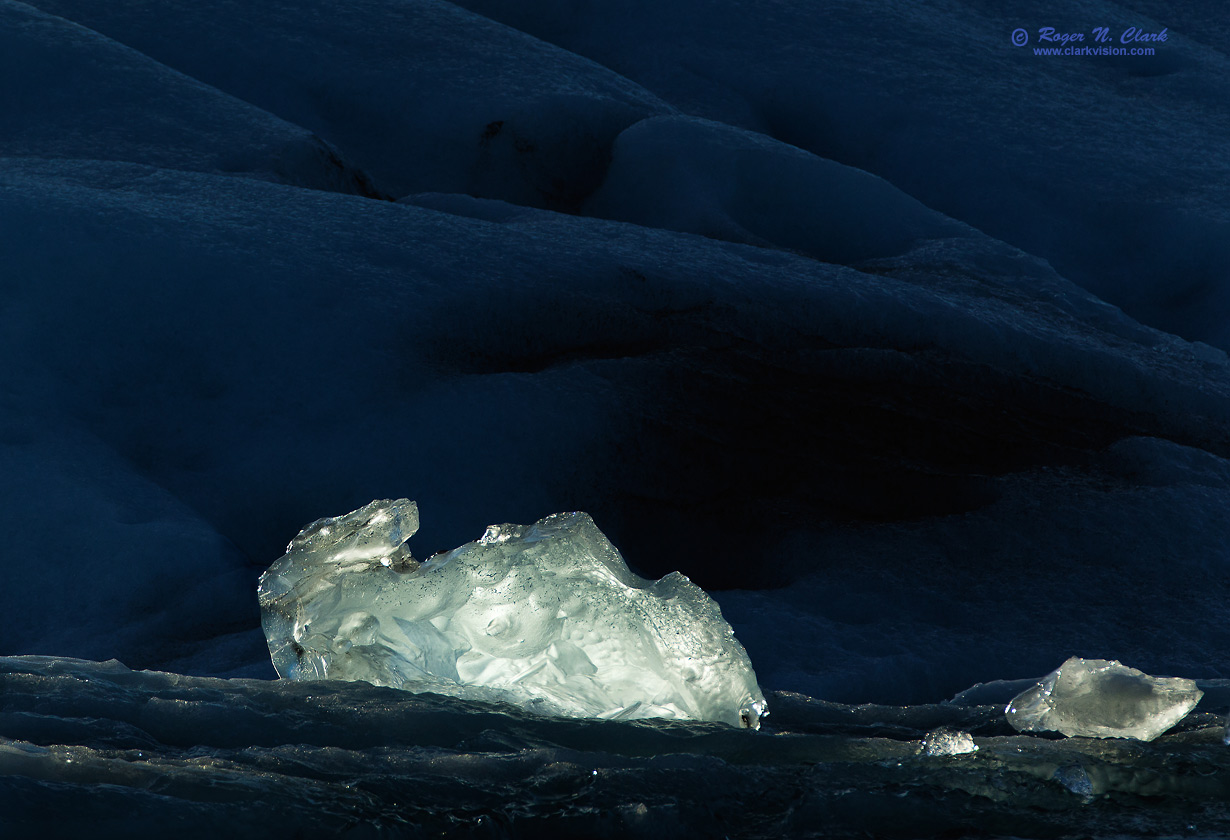| Home | Galleries | Articles | Reviews | Best Gear | New | About | Contact | Gallery Index | Previous |
Next |

| Home | Galleries | Articles | Reviews | Best Gear | New | About | Contact | Gallery Index | Previous |
Next |

The lagoon at the base of the Jokulsarlon Glacier was created by the receding glacier starting around 1934-1935. At the time of this image, the lagoon had grown to about 18 square kilometers in size and contained many beautiful icebergs of all sizes, from house size to as small as a fist. As the icebergs slowly move toward the ocean, they constantly shift position, with changes each minute or so, making for constantly changing light and compositions. The late afternoon that this image was obtained had partial break in the clouds, so sunlight shown through the thinner icebergs. This berg was in front of a larger one whose side was in shadow, illuminated by the blue sky overhead. This created the glowing iceberg on a dark blue background. Can you see the face? The glowing iceberg looks like a sea otter on its back, with glowing eyes, nose and mouth.
Other photographers at the time I was there seemed to only be using wide angle lenses. This image illustrates compositional possibilities at other focal lengths.
Technical. Canon 6D 20-megapixel digital camera with EF 70-200mm f/2.8L IS II USM Lens with Canon Extender EF 2X III at 400 mm, f/5.6, ISO 200, 1/1600 second, hand held.
To learn how to obtain stunning images like this, please visit my Extensive Articles on Photography .
Keywords to this image = iceland canon_6d NEW
Image ID: iceland-ice.lagoon.c09.11.2016.img_5303.e-c1-1230s.jpg
| Home | Galleries | Articles | Reviews | Best Gear | Science | New | About | Contact |
Last updated September 03, 2018